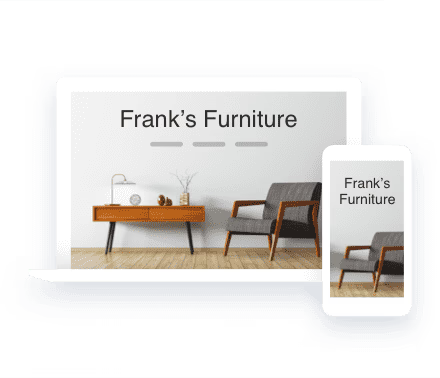Start a blog the easy way
Learn how to choose the right software
Plan your blog with our checklist
Start blogging and share your story


What features do I need to create a blog?
Simple editing: Blog software is designed so you can start a blogging website and publish your content easily. It should have an intuitive editor to help you to format your texts and images, even if you don't have any tech or design experience.
Customisable designs: Choose a platform with a wide range of design templates so you can pick one that matches your brand or topic. Using a pre-built template speeds up setup, and leaves you free to focus on your content.
Structure: You'll be writing numerous blog posts, so you need to make sure they're well organised. Good blog software will display your posts clearly so you – and your followers – can always find them again.
Easy navigation: Visitors should be able to find their way around your blogging website easily, otherwise they’ll give up and leave.
Search engine optimisation: It's obvious – when you create a blog, you also want people to read it. Make sure you choose a blogging platform with integrated SEO so people can find your posts.

How to start a blog
1
Think of a catchy name
2
Get the design right
3
Collect ideas for content
4
Write your first blog post
5
Create categories
6
Share your content
Build a website and add a blog
Start your own blog
When starting a blog website, remember that your content should deliver value to visitors. So put yourself in the readers’ shoes when you write your posts. Do this when coming up with topic ideas as well as when deciding on the presentation. Break up your blog posts with images, lists, and subheadings so they're easier to read.
Another important aspect when writing a personal blog is that you need to post new content regularly. If you publish a couple of posts per week, readers will want to come back to check out the latest. This is the perfect way to gradually build up readership and gain regular followers.
Yes, a blog has great added value for a business as long as you cover relevant topics. A successful business blog shows your clients how knowledgeable your company is and helps to gain their trust. It’s also a way to create customer engagement. Ask questions so that readers can get in touch with you either by commenting, by emailing, or by using their own blog. This way of conversing also enables you to collect important information from your clients and potential clients. You'll also pick up learnings and SEO-boosting links that can bring in more visitors. A new reader could be your next customer!
You can write a blog about any topic you want. Whether it’s cooking, crafting, baking, cycling – the important thing is that you are passionate and knowledgeable. In addition, it’s important to find your own style when writing the blog so you stand out from other bloggers and catch readers’ attention. Whatever you do, don’t copy what other bloggers have written or pretend to have an interest in something you don’t. Readers will quickly notice and lose interest in you and your blog.
As long as you have good ideas, passion, and the basic technical framework, you can make it as a blogger. You don’t have to worry about not having much (or any) technical knowledge since most software options for starting your own blog are beginner-friendly. However, building up a following takes time so you need to be patient – don’t expect success overnight. You might only have a few readers at the beginning and then notice your community growing as you share more posts. Being active on social media can also help promote your blog.
Yes, and it’s a really good idea to do so. Your logo is part of your brand and it’s how to get recognised across the web. You don’t even need to hire a graphic designer to create a blog logo – use the IONOS Favicon Generator. This creates small graphics, which are then displayed in the browser tab. Another helpful IONOS tool is the Logo Maker. You can use it to design a logo for free.
If you decide to write your own blog, there are lots of tools available to help you out. If you want a classic website with an integrated blog, a website builder like MyWebsite Now from IONOS is ideal.
Another way to create a blog is to opt for a content management system (CMS). WordPress is a popular choice as it caters to beginners and professionals. This software separates the design of the website from the content to make it really simple to publish new posts. With Managed WordPress Hosting from IONOS, all the technical parts get taken care of so you can concentrate on your ideas.
Find out more about creating a blog, in our Digital Guide.